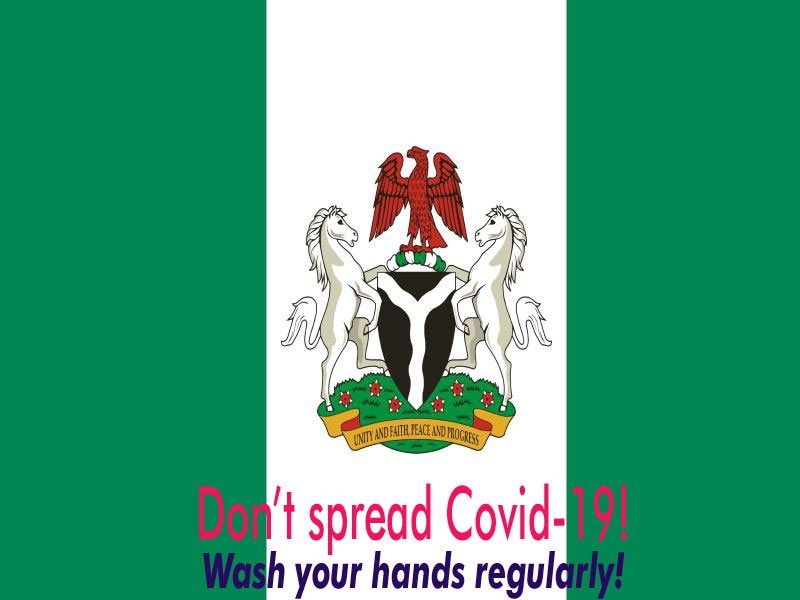By Tunde Asaju
These are not the best of times to approach governance without blueprint. Covid-19 has not been kind to governments with tailor-made dress rehearsals for national and global emergencies. One could then imagine the effect on people enamoured to the privileges of office who deny its responsibilities. The evidence is growing, that as the virus crosses borders, it mutates. It took over 40,000 deaths for America to discover that heat and humidity weakens it. And America’s medical advancement is badass even when its cutting-edge medical innovation hardly favours the indigent.
It is often amusing to read on social media how developed nations were sending palliatives to their citizens while Nigeria is not. Weevil infested rice apart; we do not have cheques going to taxpaying citizens or repayable loans to help small and medium scale businesses grounded by the lockdown with generous amortization. Developed countries have insurance pay outs to businesses under receivership. Most of these palliatives are possible because of established systems of taxation. We have a system where even taxes deducted at source are not remitted to the relevant agencies in Nigeria. We need to fix that. Nations like Canada embraced selective lockdowns. All non-essential services are closed and their workers sent home as well as schools. However, with unemployment insurance, people who lost jobs were not left in the lurch. Insurance companies would carry the burden for a few months before they too could need the help of government to hold out.
Ninety-percent of the cars on Nigerian roads have let-my-people go insurance papers. This is the reason people physically slug it out over fender-benders and disappear when a bad accident occurs resulting in injury or death. Those years spend acculturated to insurance fraud are coming back to haunt us. This too cannot be fixed overnight, but we could at least try. Is anyone listening? There’s no executive order or instruction to that effect so far.
In the other world, grocery remained open, and inter-state truck drivers operated freely. In Nigeria, western-style grocery stores partially serve only big towns and cities. The poor have no access to such luxury; they patronize makeshift markets where wares are spread on mats or torn jute bags. You can’t correct that in a hurry. When Lagos attempted to schedule neighbourhood markets, it didn’t work as urchins were reported to have looted the goods in transit. Neighbourhood market should be a national feature. We should stop pretending to be who we are not and embrace what works. On the virus itself, established nations have testing kits that are reviewed for efficiency and effectiveness based on field findings. Nigeria with an estimated population of 200 million is yet to test up to 20,000 since its index patient. The NCDC details shared daily is totally at variance with population estimates. Some states that are yet to carry out a single test bask in the false notion that they are virus free. Covid-19 loves to hit such bogus confidence with massive infection and mass deaths. That is Covid’s way of showing how living on hope is a death wish. Ability to get palliatives to those critically in need is the result of accurate census and planning. Planning works best with accurate figures. A household without the knowledge of the number of mouths to feed would either prepare more than it needs or less than is required. Nigeria needs to stop playing politics with a credible census. I believe our finance minister felt queasy citing NBS projections instead of rock-solid census data. Established societies are governed by their constitutions that define citizenship. That we have descended to the level of deporting citizens within state borders reflects how detached from our grundnorm. Progressive societies confer citizenship based on criterion other than birth, naturalization or/and ancestry.
No nation develops on the expertise of only its indigenes. Nations like Saudi Arabia are totally closed to ‘settlers’. It is shameful to see Nigeria destroying its constitution without challenge. With these fault lines, lockdown is as faulty as its partial lifting. We also have a society that is not ruled by rationality but dogma. Nigeria is a battleground for religion. With some sects believing that Covid-19 was invented to diminish their capacity to keep and increase membership, they challenge authority based on who heads it. They do not see institutions, but oppressors.
We are also attached to our dead. This is why people fight wars – to conserve burial grounds. Covid-19 anonymizes its victims, and in death it wipes out traces of their former existence – that is hard to swallow for Nigeria or any African nation where burials are big-time ceremonies and final initiation into ancestorship. We got it wrong on what to do with those who break the curfew. Should they be jailed, fined or quarantined? We have no credible alternative to jails because we have no credible identification procedure. We are too centralized to be able to know the addresses of everyone on our streets.
So, we can’t send bills to people with no known address, or who could move to the next town without records of where they were or what they did in the last place. When we get infection in the congested prisons, it’ll be a wipe-out of warder and inmates. The lockdown and ts partial lifting so far looked like people from a zombie apocalypse movie rushing to their sudden death – except that this is a real potential. We live on hope that the Covid-19 strain currently in Nigeria bows to geographical or weather patterns and spares us a wipeout.
